Felicia Day is one of the most successful nerds in history with eight million followers. So naturally she is exploring the subject of failure in her latest work called Third Eye.
She made a splash with The Guild web series about nerdy online gamers which ran for six seasons. As an actor, producer and writer, she has starred in shows like Eureka, the CW show Supernatural, the SyFy series The Magicians, and three seasons of Mystery Science Theatre: 3000. She has over 100 credits on IMDB bio and solder her digital brand and production company Geek & Sundry to Legendary Entertainment. Oh, and she wrote two New York Times bestselling books (here and here).
Her new Audible podcast Third Eye launched in October. She created, wrote, and stars in Third Eye, which is narrated by Neil Gaiman. And yet that sense of failure keeps coming back. Her whole category of the high-budget web series — spawned by the surprise and awesome success of The Guild — has been obliterated. It’s either small user-generated creator works or gigantic franchises that rule the internet now.
I met her long ago at the video game industry’s Dice Summit Awards show, which back then was about making nerds feel better about themselves with awesome awards.
Event
GamesBeat Next On-Demand 2023
Did you miss out on GamesBeat Next? Head to our on-demand library to hear from the brightest minds within the gaming industry on latest developments and their take on the future of gaming.
If all of this is failure, I hesitate to examine my own history of self-expression. But the cool thing for Day and many other nerds like me is that now we rule. We have The Last of Us on HBO, The Super Mario Bros. Movie (viewed by 169 million nerds), and Marvel’s Spider-Man 2. Nerdom is so universal it’s not even a thing anymore. Day won’t be there, sadly. But this is the kind of thing we’re talking about at our GamesBeat at The Game Awards (you can use this code, GBGA23DEAN100, to get $100 off) event on December 7 in Los Angeles on the day of The Game Awards, the annual gathering of nerds that drew 103 million viewers last year.
Still, it’s interesting to capture Day’s conflicted view of success and failure, which is built into the angst-ridden fantasy story of a hero who had a showdown with the bad guy where the fate of the world hung in the balance — and then the chosen one, the hero, failed.
Here’s an edited transcript of our interview.
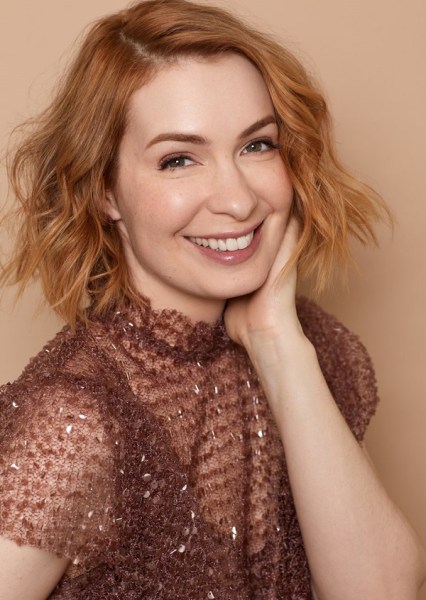
GamesBeat: I was just looking back at an interview we did nine years ago at the DICE summit.
Felicia Day: Wow. That was quite a journey. Was that in Vegas?
GamesBeat: Yes, when you hosted with Freddie Wong.
Day: That’s right. I had very short hair back then. It was a lot of fun. That’s a long time ago.
GamesBeat: It was interesting to track what you’ve been doing over the years.
Day: I’ve been doing a lot, yeah.
GamesBeat: Third Eye is coming to Audible. Is that out already, or coming soon?
Day: Third Eye is out. It’s been out for a couple of weeks now. It’s been an amazing journey. I first came up with the concept in 2015, so probably when we talked last. It’s been a long journey, but seeing it out there in the world is so gratifying.

GamesBeat: It’s interesting, what it says about this transition we’re in, from nerd culture to mainstream culture, that you would do this on Audible instead of something like Twitch.
Day: I wanted it to be–I originally conceived of it as a TV show. As you might remember, I was very well-known for doing high-budget web series. Unfortunately that whole market disappeared, very dramatically actually, with the advent of streamers and Hollywood taking over that more polished, professional web video world. There was really no middle class anymore. It became user-generated or it became television.
I wanted to tell this story, and because the venues I used to specialize in didn’t exist anymore, this was an amazing opportunity. I did pitch it as a TV show and Hollywood didn’t want to buy it. Most Hollywood screenwriters would just have to stop there. But I’m homegrown. I’m used to making my own stuff. I wouldn’t let up. This is a project I wanted to see happen. Thankfully Audible, when I pitched it, recognized it would be cool in audio. We went on a very long journey to today, when it’s out there in the world.
GamesBeat: I love Audible. I read most of my books that way now. I listened to Neal Stephenson’s New Found Land as a play on Audible. This will be interesting to watch.
Day: The whole concept of it was to make TV for your ears. It’s really a TV show. I wrote it like a TV show. But you can also consider it an audiobook that’s fully performed. Either way, I think people will get that seven-hour experience. There’s a lot of people enjoying things in audio now. It was a satisfying journey to be able to translate my vision from TV to audio.
GamesBeat: Can you sum up what you wanted to say, what you wanted to tell with Third Eye?
Day: Well, the show is about a failed chosen one. You might think of it as something like a Harry Potter who fails. What do you do when the bad guy is able to take over the world and you were fated to be the one who stopped them, but you didn’t? I came up with it because I was a prodigy myself. I was a violin prodigy. I was somewhat of a prodigy on the internet with the content I made. I was very early in making anything scripted for the internet.
I always felt like a bit of a failure, because I have way too high of standards for myself. No one can really live up to the hype of someone who’s lauded as a pioneer. I had that in my heart, and I thought this would be an interesting way to translate those feelings I had into something fictional.
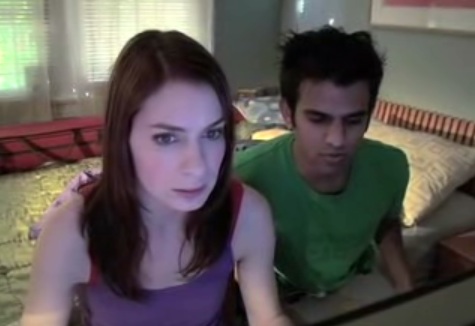
GamesBeat: I can’t get over the notion that you think you’re a failure.
Day: Again, I think I’m really hard on myself. Especially in a business sense. I started a company called Geek and Sundry and it wasn’t a very big success. It wasn’t the biggest success in the world. Being able to adjust from one phase of my career to another was hard to navigate emotionally. I think people have these expectations that you’re always going to keep growing and growing, and that’s just not reality.
Yes, you’re absolutely right. It was ridiculous. But those were the feelings I had. Being able to translate that into a piece is the way that I was able to work through it and deal with a lot of those feelings.
GamesBeat: Did you think of it in some way relating back to The Guild?
Day: The thing that was a touchstone for me was the fact that The Guild was rejected by many people who read it. They didn’t understand it. I made it in my garage for almost no money and it became a huge worldwide phenomenon. At the same time, this was a story I wanted to tell. Whether it becomes a phenomenon or not, I never had that expectation for The Guild. You can’t make those things happen. But you can tell the story you need to tell.
Especially in Hollywood, it’s a lot of frustrated artists. You’re pitching all the time. The people who allow you to tell your stories don’t necessarily have the same priorities you do. You can move on or you can see it through. I’m the kind of artist that–I just want to see my ideas through. This was an amazing opportunity to see this one through. You stick to your guns. I’m not making eight stories a year, but I needed to tell this story. The audio just happened to be the way I could tell it, and it turned out to be the ideal way to tell it.
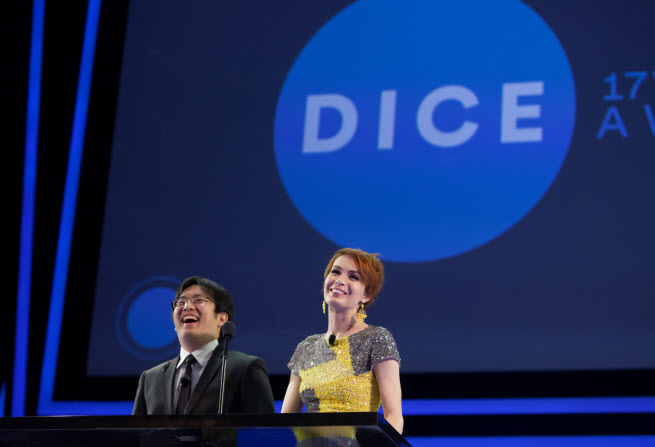
GamesBeat: Is there some notion of appealing to nerds in it still? The Guild seemed to be one of those that was addressing gaming in its adolescence, its emergence into something more mainstream.
Day: It’s interesting. When I made The Guild I was just looking to make a role for myself and tell a truth that I think no one really appreciated. I was a gamer. I’ve always been a gamer. I still am a gamer. I scream on Twitch multiple times a week. I love gaming. Whenever I told people in Hollywood that I was a gamer, they looked at me like I was an alien. They didn’t understand the concept, even of people speaking to each other over the internet. At the time that was quite cutting edge in a crazy way.
I was just determined to be who I was and show the world who I was. With this project, yes, I think nerdy people will enjoy it. It’s a fantasy comedy. It has Sean Astin and Wil Wheaton and Neil Gaiman. Certainly it checks a lot of boxes if you’re a geek or a nerd or you like fantasy and science fiction. But this is a long journey we’re telling. It’s seven hours of entertainment. It’s a whole season of TV. To be able to tell that in one go and craft it in a way where it feels like a complete piece was a huge privilege.
I hope that people see that it is funny. It has a lot of jokes. It has some nerdy Easter egg references. But it also has heart. All the characters move from one place to another in a way that takes them in a direction they need to go.
GamesBeat: What do you think of this broader transition of nerd culture to the mainstream? I was on a panel where I mentioned that I grew up at a time when games were for nerds. Nobody else really wanted to be associated with them. Then this young woman mentioned, “As long as I’ve been alive, games have been cool.”
Day: Probably! I certainly think that the earlier net was owned by geeks and nerds who were rejected by the norm. When the internet took over popular consciousness, suddenly the geeks and nerds were cool for the first time. There’s not the fire that there was with the geek and nerd culture. But I do feel like it’s become mainstream in a way where people have accepted it in their lives. There’s not as much judgment. It’s on an equal footing with more mainstream interests.
We’re all just kind of in our niches enjoying what we love. We’re connected in a new way, and we can celebrate that. Whatever it is you like, you can find someone else to connect with on the internet. It’s a big change in the way that everyone relates to what they like. It is different, and it might not be as exotic that, as a woman, I play tabletop board games or D&D or video games. But I think that’s the best thing in the world. Not only can you enjoy these things that you love with more people, but you’re opening up new avenues to have fans. You’re opening up new avenues for people to succeed in small business, or big business. You’re equalizing the number of stories and the kinds of entertainment you can make, because you have diverse voices who can tell diverse stories. It’s an advantage for everyone.
GamesBeat: You must love that we have Last of Us on HBO, the Super Mario Bros. movie.
Day: I did have a company called Geek and Sundry. We tried to produce many video game adaptations. I have to tell you, I went around with many video games. Huge IP that nobody would touch. It was just a little early for Hollywood people to jump on that bandwagon. This is right around when I started pitching Third Eye, like 2015, 2016. It just was not something that you could deadlift into the Hollywood consciousness. But now it’s amazing. I love it. I can’t wait to see every adaptation of every video game I loved, because I’ve spent hundreds of hours in those worlds. Why not see them come to life?
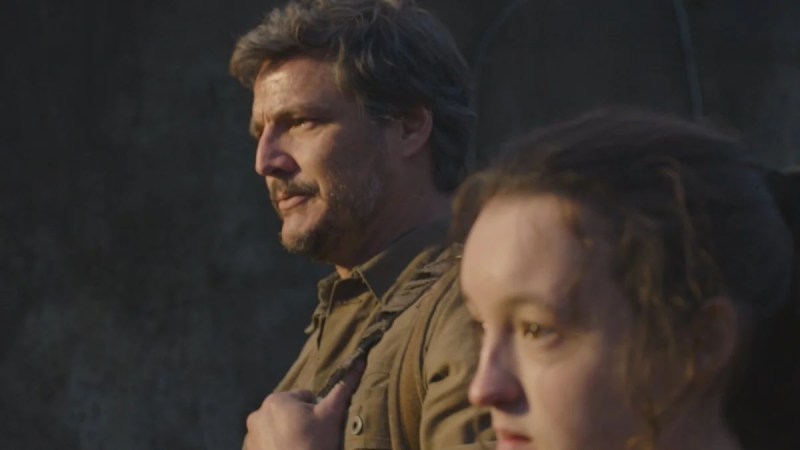
GamesBeat: The one thing I don’t like about the subculture becoming mainstream culture is that it’s also bringing a lot of the bad artifacts with it. The toxicity. You can look anywhere on social media and find all of that toxicity that seems to have its roots in gaming. I’m not sure what to do about that.
Day: Well, certainly you can see some movements of gamers being online and connected with each other way before other people. You can see it as a precursor, a canary in the coal mine, to how people can congregate together, feel very confident in their opinions because they don’t feel alone, and they’re able to assert that and not change their minds even in the face of facts, because they feel backed up by other people behind them who agree with them. I see that.
I also see that gaming, however far it’s come from where I started telling stories in the world of gaming, which was 15 years ago–it is a very youth-oriented culture and hobby. I think the turnover in the majority of fans causes lessons not to be learned so permanently. There are constantly younger kids coming up and taking over the zeitgeist. They’re not learning that maybe it’s not okay to be hostile to women, for example. I think that the more women who participate in gaming as a hobby and a profession, it’s definitely turning the tide. It’s about showing up, representing, and standing firm in your position and who you are.
It’s not easy. Slowly but surely, though, the representation chips away at the majority opinion. Even if you are backed up by other people, the example of reality, of the faces of gaming, is so diverse. You can’t really be so entrenched. Or I would like to hope so.
GamesBeat: As far as what you hope to see happen with Third Eye and what you hope it can lead to, what are your thoughts about the kind of thing you want to do more of? What do you want to do next?
Day: I’m known for The Guild. I did that for six years. I was the lead actor and creator. That’s really where my heart has always laid. I took a detour and created Geek and Sundry. It was funded by YouTube. I sold it to Legendary. Again, the disintegration of the higher budget web series affected my work and the way that I had to make content. It was something that–I love what I made, but it wasn’t exactly what my dreams were a part of. I wasn’t able to make scripted content on the budgets that were possible.
When I left my company I wanted to refocus on what I really love and why I’m here, which is telling stories that are unique to me and being an actor or some kind of a face of it. That’s exactly what I’ve done with Third Eye. I own the IP. I know there could be some interesting things to do with it in the future. But if it’s only this story and then I move on to the next, I’m happy with the way that the seven hours of content came out. It really was conceived as something that could live alone.
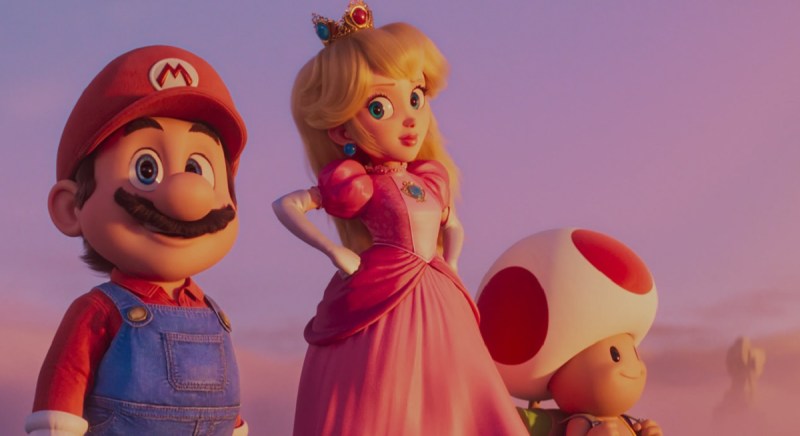
Again, just like The Guild, which I also own–I personally believe that controlling your IP, creating IP, and telling stories in whatever format you can is what I want to do. It’s the smartest thing to do. It might not be as lucrative or high-profile, but with the lucrative high-profile world comes a business that is not necessarily open to different stories. It might be a bit more discriminating, because their needs are different. You can’t be upset with that. You just have to move on.
I’m the kind of person who can’t move on from a story I have to tell, so I’ll always be popping up. Whether it’s audio or graphic novels or small videos, whatever it is, I want to tell the stories I want to tell. This is a perfect example of me not taking no for an answer and just getting the story made.
GamesBeat: Peter Levin at Griffin Gaming, I know him very well. It’s interesting that we can think that we’re in a different age now with funds like his around. They’re able to bankroll different kinds of ideas, very oriented toward projects that women lead.
Day: I’m actually on the board of advisors for Griffin. I’m on the boards of a couple of companies that they’ve funded. Peter is very good at backing up that position of investing in women and diverse voices and subject matter. I’m always impressed with how he follows through. I’m just happy to work with him on a number of projects. It’s important to have that backing. The statistics are very clear that women can’t get as much investment as men. I don’t think that’s just a coincidence. It’s not about their stories or their experience. It’s about something else that’s endemic in that crowd that has the money. We need more groups like Griffin to be out there funding companies. A good idea can come from anywhere.
GamesBeat: It almost seems like–I guess we’re in a stage where if you know the right people and you’ve accomplished a lot, you can make these dreams come true, and then also lead the way for other people to see that it’s possible.
Day: For me it’s always been about representation. I hear a lot about how the stories I’ve told, the roles I’ve taken as an actor, me running a company, it’s inspired other people to follow in those footsteps. It’s given them the idea that they could do something like that. That’s what it’s all about. We’re taught a very rigid concept of what life is like and what we can expect from it, especially based on what we look like – our gender, our skin color, our background. Sometimes, if we’re presented with a different concept, especially with someone who looks like us, or we see ourselves in, that can lead to a whole new direction in life. That’s important. Just showing up sometimes can make the impact. It doesn’t matter how successful you are. Just existing can affect other people.
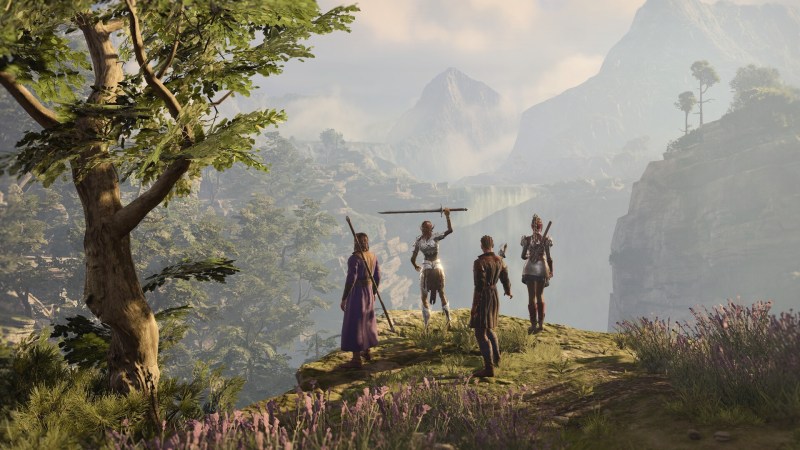
GamesBeat: Are you playing any particular kinds of games these days?
Day: I stream three times a week on Twitch. Which I probably shouldn’t, but I just can’t quit it. It’s my excuse to game, to be honest with you, because I’m a mother now and I feel guilty playing video games. It’s my “job,” but not really. I love farming games. Recently I’ve been playing a lot of Fae Farm. I love big story-driven RPGs. It’s been an amazing year so far with Baldur’s Gate, the Cyberpunk DLC, the new Assassin’s Creed. It just goes on and on with these amazing new games.
I like story-driven indies, farming games, and RPGs. Those are probably my sweet spots. And Fortnite. I got hooked on Fortnite, which is the most fun way to hang out with your friends online.
GamesBeat: Is your child old enough to watch you or play with you?
Day: I didn’t show her any screens until she was three years old. When she was three I started playing 30 minutes of Switch each night with her. We’ve gone through Mario Odyssey three or four times. We’ve been playing Pokemon Violet. So yes, ever since she was three years old, every night we play 30 minutes of games. She’s pretty shy about picking up the controller herself. She prefers to watch me. But she’s super invested. We do it together. It’s the highlight of my day.
GamesBeat: I’m a little further along. I used to play things like Barbie Horse Adventures with my three girls. Journey and Flower. Now they’re playing The Last of Us Part II and Spider-Man 2.
Day: I love it. Again, if your kids see you gaming, they’re going to want to game. It’s about seeing a path that’s possible and what you think is cool. For a while you’ll still be cool as a parent. I’m sure that changes.
GamesBeat: Anything associated with gaming, it gives me some credibility. They also know that I’m really bad at playing games, so they can beat me.
Day: I’m certainly not ever going to be a competitive player at anything. But I love hanging out with my friends playing Fortnite. It’s really like shopping and chatting for me. It’s the most fun way to do it.
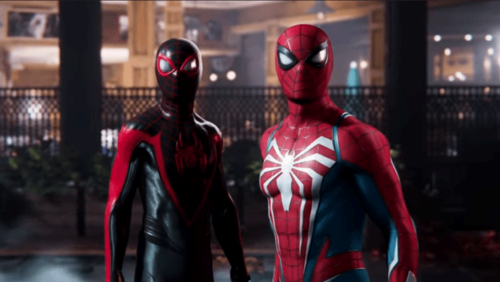
GamesBeat: With streaming, you have the confidence to play online, even if you’re not the esports expert?
Day: I’ve always been like that. I had a show called Co-Optitude on Geek and Sundry, where my brother and I, who were deprived of any consoles as a child, played games super badly. We picked them up and played them. I got a lot of flak from that. I got a lot of pushback from fans who expected me–I’m a gamer girl, so I need to be good at every single game and know every single game. I’m like, no, not at all! That’s part of the problems with the hobbies that we love and the lifestyle we have. Getting into something that you don’t know everything about is hard nowadays, because there are a lot of gatekeepers. There’s a lot of judging people, especially against people who don’t look like they do.
As a woman, it’s hard to get into a hobby like this. You need someone to hold your hand. That’s what I did with all the content on Geek and Sundry. We did tabletop games. We did Magic: The Gathering. We did D&D with Critical Role. We did a lot of things that I always wanted to play when I was younger, but I just didn’t know how to start. It can really transform your life if you just get one video that shows you how easy it can be to just pick up a Magic deck and start playing with a friend. Unfortunately I don’t have that company any more, so I’m not able to do that now.
GamesBeat: If you were a billionaire and you had all these resources at your disposal, what would you do for gaming and transmedia, or gaming in Hollywood?
Day: If I had a billion dollars I’d probably be living in Europe now. I would be streaming. I would be self-publishing novels. So I probably wouldn’t be doing much different. But if I had that money to help other people, for sure, I’d probably dive into the indie gaming scene. Some of the games I’ve played are clearly two or three people in the shop, and they’re my favorite games. There’s a game called Potion Craft I love. All these little building games. There are brilliant people out there, and they could use a boost. That would really fulfill me, to be able to enable that. But for now I just tell my stories. I can be on an advisory board here and there. That feels like doing my part on my level now.
GamesBeat: Renee Gittens has a game called Potions coming in the next year.
Day: If it has potions in the title, I will play it. I’m not kidding. There’s a bunch of potion games. If it requires any kind of farming or making something, I’m definitely in that game. It has a cat and a witch! You’ve never sold me a game quicker in my life.
GamesBeat: Are there any other causes that you’re interested in right now? Anything you like exposing your audience to?
Day: I do charity streams. I love exposing people to the charities I’ve worked with. I’m working with a bird rescue in Atlanta because they’re so small, but they love birds so much. It’s called Papayago. It’s a wonderful charity. I’m super supportive of Black Girls Code and Girls Make Games. Those are two charities I work with a lot. I do a newsletter where I link interesting things for my audience. I have a podcast. I just love interacting with my audience on whatever level. I have a really vibrant Discord.
I love Twitch. I fell in love with Twitch when I first started streaming nine years ago. It’s not my profession, although it is my retirement plan. But I love it. I’d rather have a thousand loyal fans than a million–I mean, I have millions on Twitter, but it’s not really that useful anymore because of the platform changes. If you can own your audience and keep in touch with them, a small number will keep you making things. That’s all I’m trying to do.
GamesBeat: I want to retire and get through my pile of shame.
Day: Oh yeah, on Steam? There are so many Steam games I haven’t played. Honestly, when you asked me if I had a billion dollars, I’d be doing some version of what I’m doing now. Making the stories I want to make however I can make them, playing some video games, and acting when I can. I’m in a good place right now.
GamesBeat’s creed when covering the game industry is “where passion meets business.” What does this mean? We want to tell you how the news matters to you — not just as a decision-maker at a game studio, but also as a fan of games. Whether you read our articles, listen to our podcasts, or watch our videos, GamesBeat will help you learn about the industry and enjoy engaging with it. Discover our Briefings.

